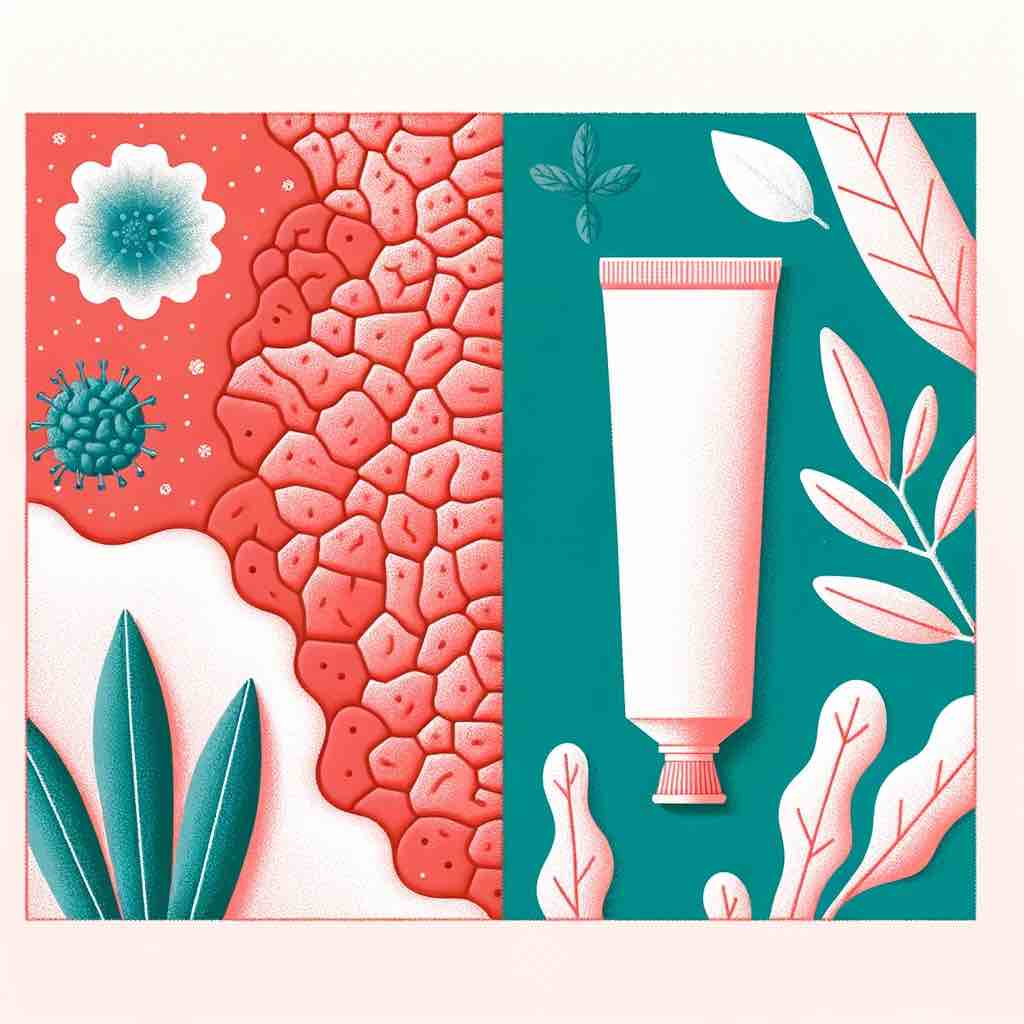
Eczema is a challenging skin condition, marked by a relentless cycle of itchiness, inflammation, and sometimes, pain. While the market is flooded with remedies, finding a solution that addresses the root cause and not just the symptoms is like finding a needle in a haystack. Enter Eucrisa, a topical ointment that has been a game changer for many battling mild to moderate eczema. This post unfolds the myriad aspects of Eucrisa, from its mechanism of action to user experiences.
What Makes Eucrisa Stand Out?
Eucrisa (Crisaborole) Ointment 2% is a non-steroidal, topical medication, specifically formulated for the treatment of mild to moderate eczema (atopic dermatitis) in individuals aged 2 years and older. The hallmark of Eucrisa lies in its active ingredient, Crisaborole, which acts by inhibiting an enzyme known as phosphodiesterase 4 (PDE4). This enzyme is closely linked to the inflammation seen in eczema, and by blocking its action, Eucrisa addresses the underlying cause of eczema rather than just providing symptomatic relief.
Delving Into The Science: How Does Eucrisa Work?
The pivotal role of Crisaborole in Eucrisa cannot be overstated. By inhibiting PDE4, it helps in reducing the levels of inflammatory messengers in the body, which in turn, decreases inflammation and itching. This approach not only provides relief from the symptoms but also has a therapeutic effect on the skin condition.
Clinical Backing: Eucrisa’s Efficacy in Trials
The effectiveness of Eucrisa has been underpinned by robust clinical trials. Participants in these trials reported a significant alleviation in itching and inflammation within the first week of application. These promising results indicate Eucrisa’s potential in providing rapid relief from eczema symptoms, making it a worthy consideration for those grappling with this skin condition.
A Glimpse Into Users’ Journey: Real-life Efficacy
The real measure of a treatment’s effectiveness lies in the relief it provides to the users. A myriad of user testimonials reflects a blend of experiences with Eucrisa. While many laud it for its rapid action and lasting relief, some express discontent, primarily due to the burning sensation they experienced upon application. Here are some snippets from various online platforms:
- “Eucrisa worked like magic, my skin started to clear up within days,” shares a user on WebMD.
- “The burning sensation was a bit too much for me, although I did notice a slight improvement in my eczema,” mentions a user on Drugs.com.
The Monetary Aspect: Cost and Availability
Eucrisa, being a prescription ointment, comes with a price tag that may vary depending on the pharmacy and insurance coverage. The price for a 60g tube of Eucrisa ranges between $550 to $710 without insurance, which could be steep for many. However, manufacturer coupons and insurance coverage can significantly curtail the cost, making it accessible to a broader audience.
Eucrisa Application: A Simple Regime
The application of Eucrisa is straightforward – it is intended for topical use and should be applied to the affected area(s) twice daily or as directed by a healthcare provider. Adhering to the instructions provided by the healthcare provider or on the packaging is crucial to ensure the safe and effective use of Eucrisa.
The Side Effect Spectrum: What to Expect?
Like any other medication, Eucrisa does come with a set of potential side effects. However, the severity and extent of these side effects can vary greatly from individual to individual. The most common side effect reported is a burning or stinging sensation at the application site. Others include skin irritation, redness, or swelling. It’s vital to consult with a healthcare provider to understand the possible side effects and how to manage them.
Mitigating Side Effects: A Proactive Approach
In order to mitigate the side effects associated with Eucrisa, it is advisable to follow the instructions of use diligently. Applying the ointment as directed by a healthcare professional and avoiding overuse can significantly reduce the risk of side effects. If any adverse reactions are noticed, it is crucial to contact a healthcare provider immediately.
Eucrisa vs. Steroidal Creams: A Comparative Lens
Eucrisa’s non-steroidal formulation sets it apart from many other eczema treatments that are steroid-based. Steroidal creams, while effective, can come with a host of side effects including skin thinning, pigmentation changes, and even systemic absorption leading to internal side effects. Eucrisa, on the other hand, offers a safer alternative with its non-steroidal composition, minimizing the risks associated with long-term steroid use.
Eucrisa for Different Forms of Eczema
While Eucrisa is primarily formulated for mild to moderate atopic dermatitis, its effectiveness in treating other forms of eczema such as contact dermatitis, dyshidrotic eczema, or perioral dermatitis is still under exploration. However, some users have reported positive outcomes when using Eucrisa for these other forms of eczema. Discussing with a dermatologist is advisable to determine the suitability of Eucrisa for treating other types of eczema.
Embracing or Avoiding Eucrisa: A Personalized Decision
The decision to use Eucrisa should be a well-informed one, made in consultation with a healthcare provider. Assessing the severity of eczema, the efficacy of other treatments tried, and the financial implications are all crucial factors that should be considered.
What The Future Holds: Eucrisa and Beyond
The development of Eucrisa has opened new avenues in eczema treatment, emphasizing the importance of addressing underlying causes alongside symptomatic relief. As research progresses, there’s hope for more innovative and effective solutions for eczema sufferers.
Eczema can be an intrusive condition, significantly impacting the quality of life. However, with advances in medical science and tailored treatment plans, managing and overcoming eczema is becoming a tangible reality. Eucrisa stands as a testament to these advancements, offering a beacon of hope for many embroiled in the daily struggle against eczema.
This comprehensive dive into Eucrisa aims to equip you with the knowledge needed to make informed decisions regarding your eczema treatment. For more insights and solutions for eczema, explore our posts on Soothing the Itch: Guide to Eczema Relief and How to Stop Eczema Itching Immediately.
FAQs
- What exactly is Eucrisa and how does it work for eczema relief?
- Eucrisa is a topical ointment containing 2% crisaborole, which acts by inhibiting an enzyme known as phosphodiesterase 4 (PDE4). By doing so, Eucrisa helps in reducing the inflammation associated with eczema, providing relief from symptoms.
- How long does it take for Eucrisa to show results?
- The time frame for Eucrisa to exhibit noticeable results can vary from person to person. It’s crucial to follow the guidelines provided by a healthcare professional and maintain consistent application to achieve optimal results.
- Can Eucrisa be used for severe cases of eczema?
- Eucrisa is primarily recommended for mild to moderate cases of eczema. However, a consultation with a dermatologist is advisable to determine the suitability of Eucrisa for severe eczema cases.
- Are there any alternatives to Eucrisa for eczema treatment?
- Yes, there are several other treatment options available for eczema, including steroidal creams, light therapy, and other non-steroidal topical treatments. The right treatment for you would depend on your individual circumstances and the severity of your eczema.
- How should Eucrisa be stored for maintaining its efficacy?
- Eucrisa should be stored at room temperature, away from direct sunlight and heat. It’s also advisable to keep it out of reach of children and pets.
- Is Eucrisa suitable for use on children and infants?
- Eucrisa is approved for use on children aged 2 years and above. However, it’s crucial to consult with a pediatric dermatologist to ensure it’s the right treatment for your child’s specific needs.
- Can Eucrisa be used on the face or other sensitive areas?
- Yes, Eucrisa can be used on the face and other sensitive areas, but it’s always advisable to follow the instructions provided by a healthcare professional to avoid any adverse reactions.
Further Reading and Resources
Dealing with eczema can be a challenging journey, but being well-informed and having a support system can make a significant difference. In your quest for relief from eczema and its symptoms, it’s essential to explore various perspectives and remedies. Here are some insightful posts from our blog that delve into different facets of eczema, its relation to other elements, and potential solutions:
- Understanding the Itch: A Guide to Eczema Relief
Delve deeper into understanding the itch associated with eczema and discover a range of remedies that can provide relief. - The Milk-Eczema Connection: An In-depth Analysis
Explore the correlation between various types of milk and eczema, and learn how making specific dietary changes might aid in managing eczema symptoms. - Breastfeeding and Eczema: What’s the Connection?
Discover the potential impact of breastfeeding on eczema and gather useful tips on how to manage eczema while breastfeeding. - Eczema and Dermatitis: Causes and Coping Mechanisms
Uncover the underlying causes of eczema and dermatitis and learn various coping mechanisms to better manage these skin conditions. - Colostrum: A Potential Remedy for Eczema?
Dive into the potential benefits of colostrum in alleviating eczema symptoms and understand its nutritional significance. - Oatmeal Baths: A Soothing Remedy for Eczema and Dermatitis
Learn about the soothing properties of oatmeal baths and how they can be a natural remedy for eczema and dermatitis.
Each of these posts offers a unique perspective and a wealth of information to help you better understand eczema and find potential ways to manage its symptoms. By arming yourself with knowledge and exploring various remedies, you’re taking positive steps toward finding the relief you seek.
Blog Tags
Eucrisa, crisaborole ointment, eczema treatment, non-steroidal eczema cream, atopic dermatitis, dyshidrotic eczema, perioral dermatitis, eczema relief, eczema management, skin inflammation, topical eczema treatment












